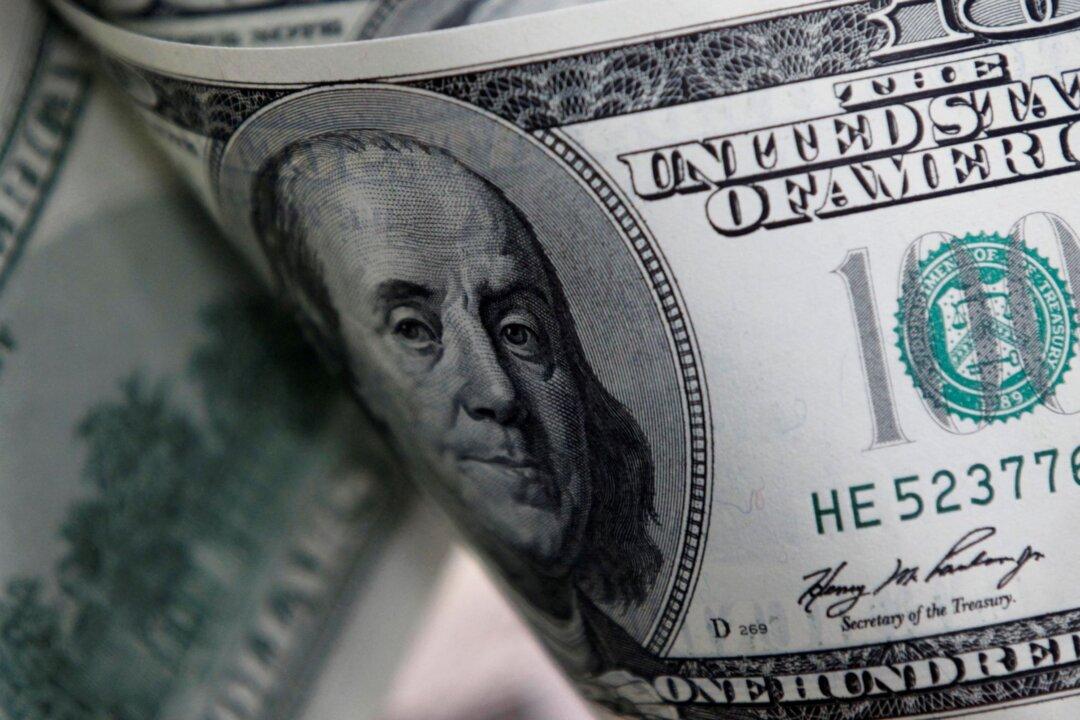LONDON—The dollar edged up on Wednesday after its biggest drop in a year the day before when cooler U.S. inflation data added to investor conviction that the Federal Reserve may not raise rates again, while the pound fell after slower UK inflation figures.
Tuesday’s steep drop in the dollar was sparked by data showing U.S. consumer prices were unchanged in October, with the annual rise in underlying inflation the smallest in two years. In the 12 months through October, the CPI climbed 3.2 percent—below economists’ estimates—after rising 3.7 percent in September.





